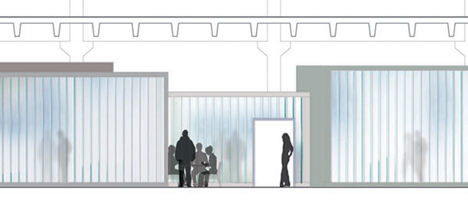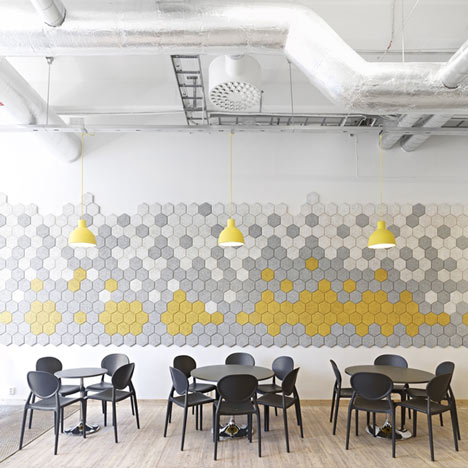
Stadsmissionen School by Codesign
Architects Codesign have converted a Stockholm warehouse into a school.
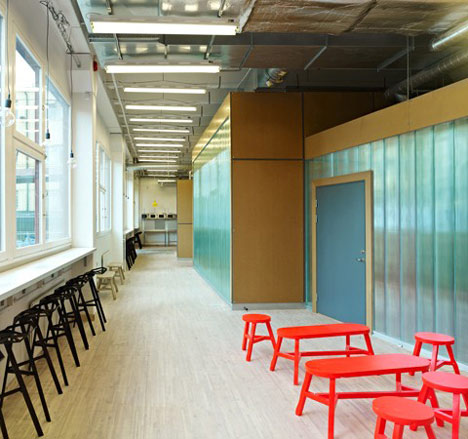
Clusters of recycled-glass classrooms are arranged inside the former furniture storage facility, filled with colourful chairs and carpets.
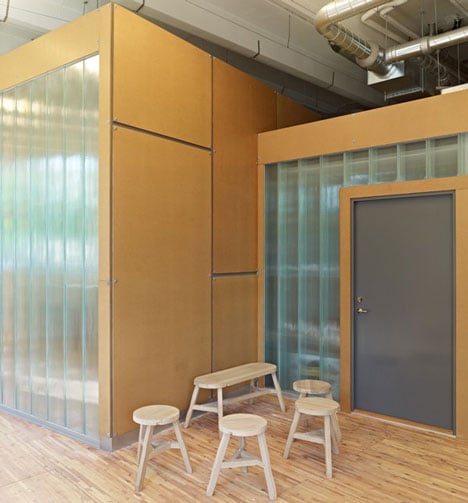
Informal study areas line the corridors outside classrooms.
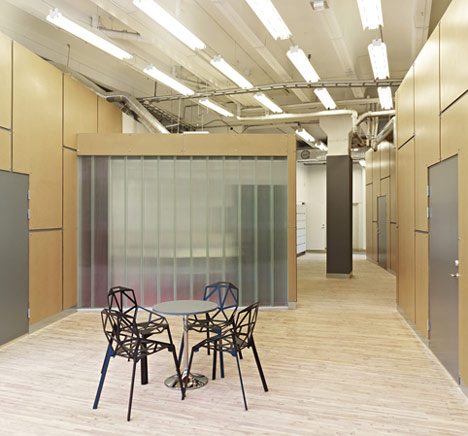
Weighted hatches lift up to reveal a cafe counter at one end of the building, beside a line of black tables and yellow lampshades.
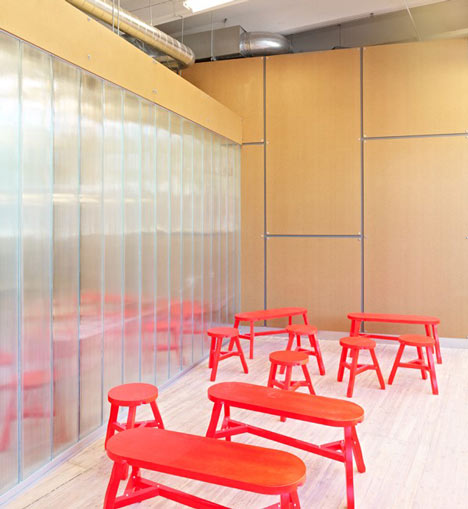
Other interesting interiors in Stockholm include offices for Skype and a hotel with layered fabric lamps - see all our stories about Stockholm here.
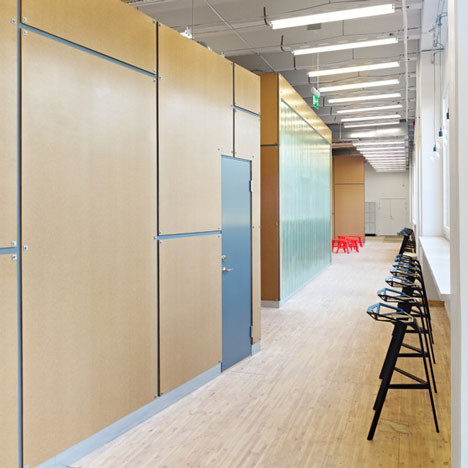
Photography is by Brendan Austin.
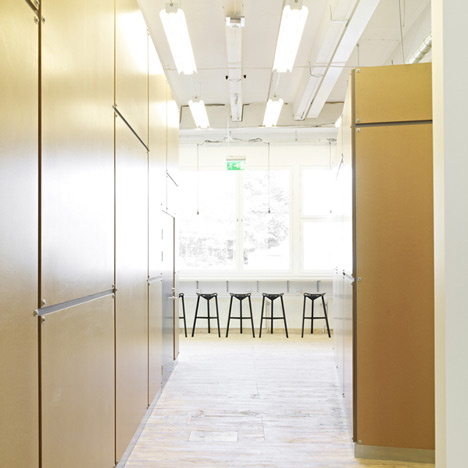
The following information is from Codesign:
Stadsmissionen School
To remodel worn school premises, on a tight budget and a tight time schedule, is nothing new. Doing it together with a client such as Stockholms Stadsmission (a nonprofit organization), with their progressive vision, is a challenge which can only be loved.
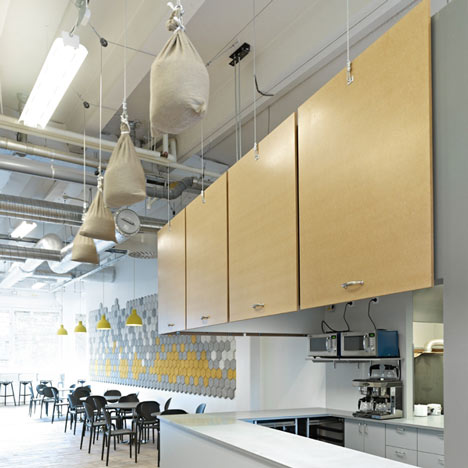
The aim was to create an attractive, dynamic environment where everyone is proud to spend their time.
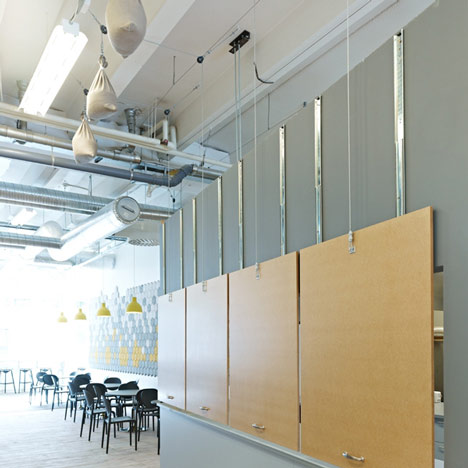
The brief was to transform a 1000 m2 worn industrial shed, formerly used as a secondhand cloths and furniture store, into a functional learning environment in addition to increasing the capacity of the school with an increasing number of students.
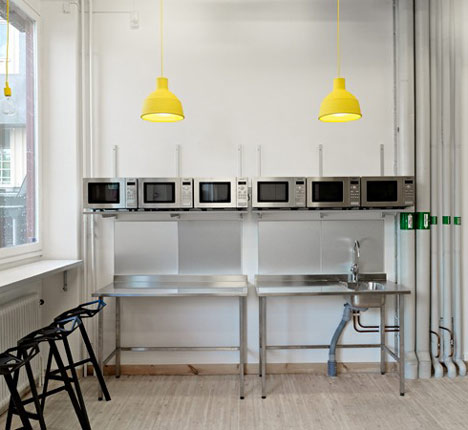
A brief was worked out together with the client, where secondary spaces such as entrance, staircases and corridors were to be considered to be the primary spaces.
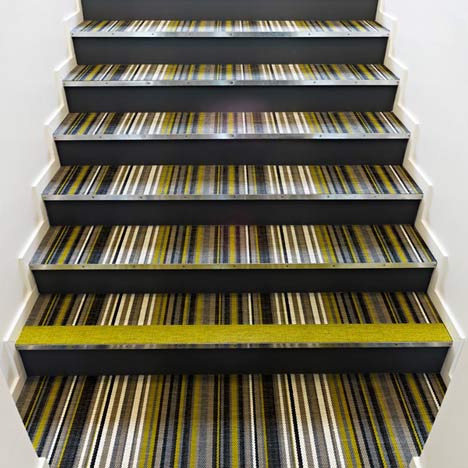
The idea was to transform under-used spaces into functional spaces for a multitude of purposes.
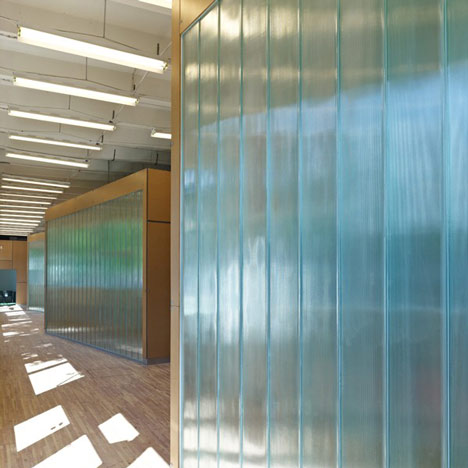
These secondary spaces now contain a new hub consisting of a centrally located cafe, in addition to informal study areas and intimate seating areas clustered between the classrooms and rooms for group studies.
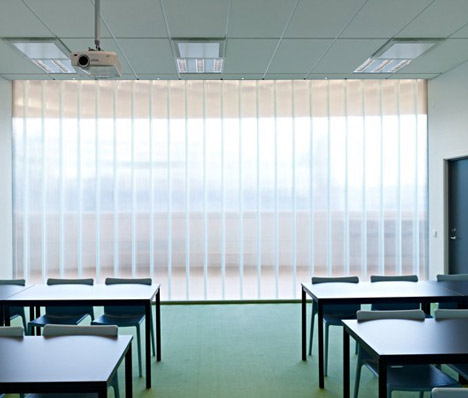
Clearly defined pods, containing classrooms, have been added within the original industrial shed.
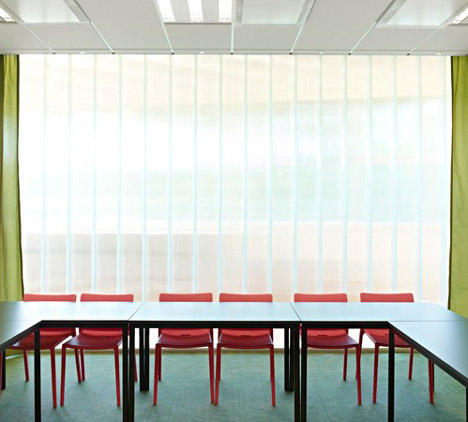
The public flow takes place between the facade and the pods, as opposed to the traditional central spinal corridor with the classrooms butted against the facade.
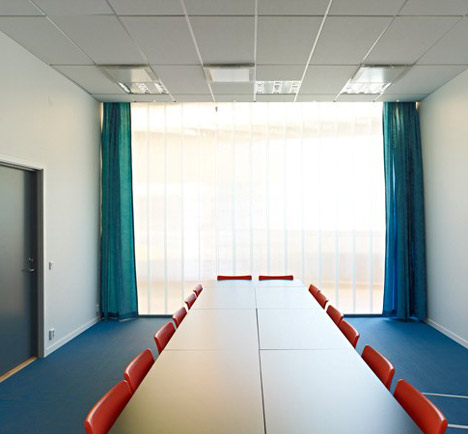
The space for communication thus becomes light and airy, and spaces for incidental meetings are created, such as the café, study areas etc. The classrooms are used for teaching or group studies.
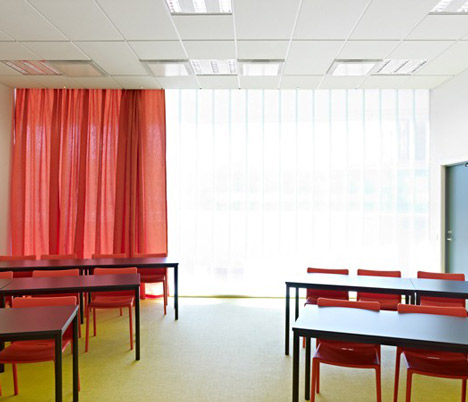
The industrial character has been retained to the greatest extent. This is juxtaposed by the pods which have been given colourful interiors which seep out into the public spaces through the glass skin of the pods and when the doors o f the pods are left open.
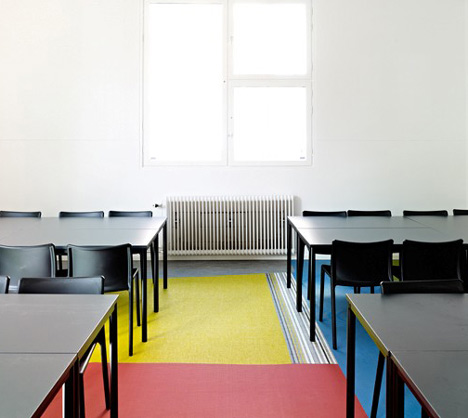
As the project only has a limited life span (the building will be demolished in a few years time) it was crucial to use recyclable materials where possible.
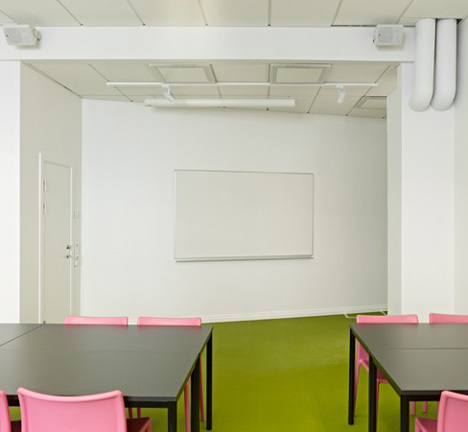
The glass skin of the pods, consists of a U-profile glassing system of cast glass, which is already recycled and can be recycled again.
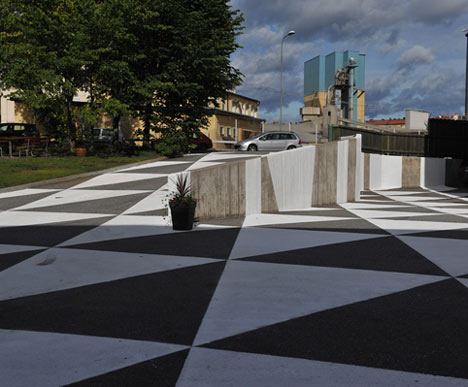
The vinyl flooring can be recycled and the MDF cladding of the pods, can be dismounted and moved.
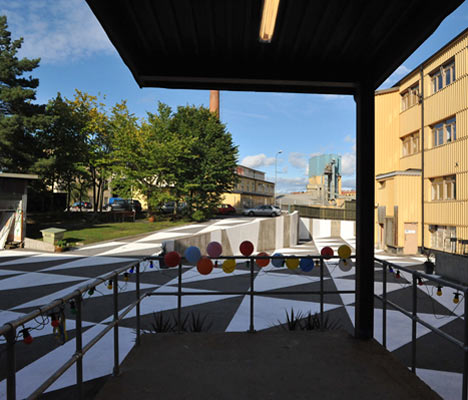
The furniture is likely to outlive the building and will thus follow the school to their new premises, yet unknown.
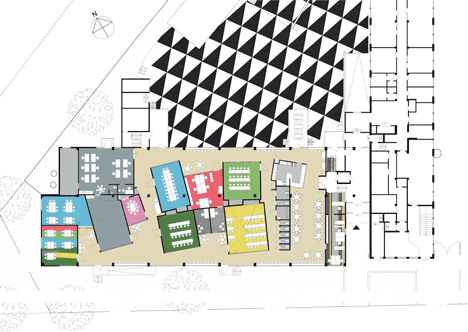
The entire project has been a close cooperation with the client, from first initial meeting to beyond completion, including follow-up and evaluation on completed project.

Codesign has been responsible for a large portion of the procurement and the project management of the building project, as well as the complete furnishing and fitting of the interior design. The result is a project finished on time – and under budget! Obviously, this was only achievable due to close and excellent cooperation with the Stadsmissionen managers and staff plus the builders.
